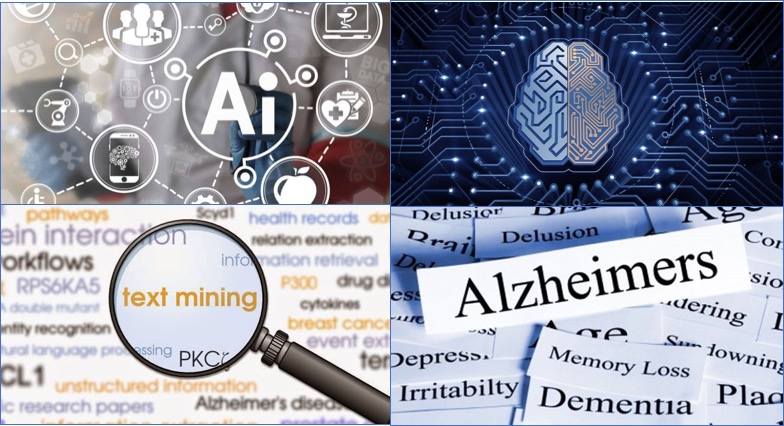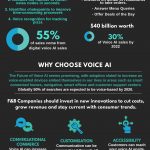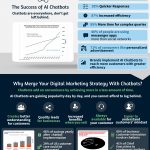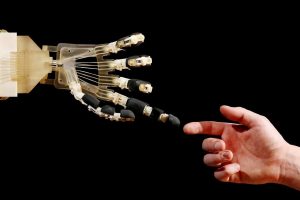Meet your A.I. Therapist- The 3 things you need to know about the transformation of behavioral and mental health care through Artificial Intelligence .

Image Source: Publichealth
“How are you today?”
These are words that we might hear from a friend or stranger, be it a simple greeting or the start of a conversation. On occasions, it may mean more to an individual than we might actually realise. Depression is the leading mental disorder of today’s world, with an estimated 300 million people affected globally. Mental disorders (including depression and other anxiety related disorders) cost the worldwide economy close to US$1 trillion every year. The prevalence of mental disorders has a massive influence over society and economy, making it imperative to find more accessible and economical ways to provide mental healthcare.

Dr Maragaret Chan, Director-General of WHO, asserted that “We must now find ways to make sure that access to mental health services becomes a reality for all men, women and children, wherever they live” (https://progress.im/en/content/world-mental-health-day-2017). One way technology can step in is via the development of Artificial Intelligence (AI). AI can definitely be integrated into the existing mental healthcare system to complement and enhance existing protocols. This will make the vision of making of mental healthcare accessible and economical a reality.
Here are some of the ways AI can be engaged within the mental healthcare sector.

1. Increased Efficiency
Some of the most pressing issues of the mental healthcare sector is the lack of manpower, which leads to a whole host of inefficiencies. The healthcare professionals are overworked. Waiting times to see a professional for help can be up longer than expected, up to months on occasion, just for a single appointment.
Response time and continual therapy is crucial to the recovery of a patient with mental health issues. Lengthy waiting times make it challenging to provide a wholesome recovery plan without any interruptions or at a regular pace. By bringing AI on board as an emotional healthcare companion, patients can now simplify the whole process of meeting a human professional. From the comforts of your home, your smart home AI now brings the therapy to you.
AI is able to provide instant responses, something that the traditional mental healthcare struggles to achieve. Instead of having to wait, AI allows for intervention right at the moment of distress. Individuals can approach their AI assistant for therapy or emergency aid with zero lead and down time.
This cements the ability to provide spontaneous and instant support, as well as regular therapy that is not limited to the availability of the physician. Patients no longer have to travel distances for their appointments. Instead, they are free to get the help that they need at their own convenience and at their own comforts.
This will also ease the burdens of the physicians themselves. Having AI takeover portions of the patient’s recovery allows physicians to devote more time to patients with more serious conditions, to come up with better therapy options, and even research.
2. Customization of recovery plans and monitoring of conditions.
Each AI system is personal to each individual, and hence can be used to track habits and patterns to create and customise a personal recovery scheme. AI programs are be optimised as according to the lifestyle of the user. As mentioned before, it is important for mental health patient care to be consistent and continual. With the use of AI as an emotional companion, the patient can do regular check ins, allowing the AI to collect data on the patient’s emotional wellbeing at regular intervals.
This data can also be made accessible to the the patient’s physicians, allowing remote monitoring of the patient’s healthcare and emotional status. This removes the need for the patient to be physically present in order for the doctor to produce a diagnosis. Situations where patients are too busy or unwilling to turn up for appointments can also be prevented.
Therapy procedures can also be incorporated into the AI system. For example, chatbots that employ Cognitive Behavioral Therapy (CBT) have been programmed for individuals to interact with and conduct regular check ins.
CBT is a psycho-social intervention that focuses on reversing unhealthy mindsets and behaviors, improving emotional regulation and developing personal coping strategies. In a study done by P. Musiat and N. Tarrier, it is determined that computerized forms of CBT is more cost-effective and cheaper than conventional face-to-face therapy. Following this development, AI has been integrated so that speech patterns and word use can be tracked to personalize the way the AI interacts with the patients.
AI and CBT integration also leads to the next.
3. Overcoming the obstacle of Stigmas.
The use of AI as an emotional companion can help overcome the problem of social stigma faced by individuals with mental disorders. An AI cannot judge. An AI is not constrained by social constructs and hence allows for freedom of speech, and most importantly, freedom of judgement. It might be easier for someone suffering to confide to a subject that cannot judge than to a real life human being already imbued with cultural and societal norms.
A deterrent for seeking help is the fact that individuals fear judgement from another individual, even to a professional. Such is the importance of an mobile application that can replicate the experience of speaking to a professional.
Woebot, a application that works similarly to a instant messaging app, is designed to be a listening ear that can adapt and tailor questions to situation over repeated conversations. The application guarantees the presence of a non-judgement listener. This factor alone encourages more individuals to seek the treatment that they need by providing a means of communication and expressing their thoughts and emotions.

The Bottomline :
It is important to note that the use of AI technology in the mental health sector is developing. However, looking at the numerous innovations in recent years, it is safe to assume that AI has the potential to revolutionize the way we approach mental healthcare. Mental health AIs are currently mostly restricted to mobile and online applications. There is the possibility of integrating such systems into the home AI and smart assistant systems, moving away from text-based communication to voice communication. In other words, we move towards the most organic means of communication – speech.

The possibilities of using voice AI for mental health services is an inevitable future, in comparison to human therapists, AI technology is cost effective, enables continual (e.g., hourly) monitoring unlike brain imaging, and can be implemented as Apps in smartphones or smart home devices such as Amazon Echo for unobtrusive mental health monitoring. Winimy believes that Voice technology is one tool that will power the next generation of AI based, affordable mental healthcare.
Recent Posts

Ordering food via WhatsApp? How WhatsApp Business API is helping restaurants manage delivery orders.
With over 1.6 billion users, WhatsApp has bridged a gap between customers and businesses. Businesses can now deliver to the customers what they love the most- convenience and speed. These …Read More »
4 Reasons why Voice AI is Core in Reshaping F&B Scenes

7 Most Successful Reasons why AI Chatbot is the Future
Recent Posts

Ordering food via WhatsApp? How WhatsApp Business API is helping restaurants manage delivery orders.
With over 1.6 billion users, WhatsApp has bridged a gap between customers and businesses. Businesses can now deliver to the customers what they love the most- convenience and speed. These …Read More »
4 Reasons why Voice AI is Core in Reshaping F&B Scenes

7 Most Successful Reasons why AI Chatbot is the Future





